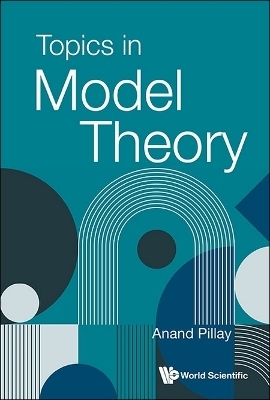
Logic for Justice
An Introduction to Formal Logic with an Emphasis on Political Reform
Seiten
2023
Routledge (Verlag)
978-1-032-06157-3 (ISBN)
Routledge (Verlag)
978-1-032-06157-3 (ISBN)
An introductory textbook, Logic For Justice covers, in full detail, the language and semantics of both propositional logic and first-order logic. Furthermore, it motivates the study of those logical systems by drawing on social and political issues.
An introductory textbook, Logic for Justice covers, in full detail, the language and semantics of both propositional logic and first-order logic. It motivates the study of those logical systems by drawing on social and political issues. Basically, Logic for Justice frames propositional logic and first-order logic as two theories of the distinction between good arguments and bad arguments. And the book explains why, for the purposes of social justice and political reform, we need theories of that distinction.
In addition, Logic for Justice is extremely lucid, thorough, and clear. It explains, and motivates, many different features of the formalism of propositional logic and first-order logic, always connecting those features back to real-world issues.
Key Features
Connects the study of logic to real-world social and political issues, drawing in students who might not otherwise be attracted to the subject.
Offers extremely clear and thorough presentations of technical material, allowing students to learn directly from the book without having to rely on instructor explanations.
Carefully explains the value of arguing well throughout one’s life, with several discussions about how to argue and how arguments – when done with care – can be helpful personally.
Includes examples that appear throughout the entire book, allowing students to see how the ideas presented in the book build on each other.
Provides a large and diverse set of problems for each chapter.
Teaches logic by connecting formal languages to natural languages with which students are already familiar, making it much easier for students to learn how logic works.
An introductory textbook, Logic for Justice covers, in full detail, the language and semantics of both propositional logic and first-order logic. It motivates the study of those logical systems by drawing on social and political issues. Basically, Logic for Justice frames propositional logic and first-order logic as two theories of the distinction between good arguments and bad arguments. And the book explains why, for the purposes of social justice and political reform, we need theories of that distinction.
In addition, Logic for Justice is extremely lucid, thorough, and clear. It explains, and motivates, many different features of the formalism of propositional logic and first-order logic, always connecting those features back to real-world issues.
Key Features
Connects the study of logic to real-world social and political issues, drawing in students who might not otherwise be attracted to the subject.
Offers extremely clear and thorough presentations of technical material, allowing students to learn directly from the book without having to rely on instructor explanations.
Carefully explains the value of arguing well throughout one’s life, with several discussions about how to argue and how arguments – when done with care – can be helpful personally.
Includes examples that appear throughout the entire book, allowing students to see how the ideas presented in the book build on each other.
Provides a large and diverse set of problems for each chapter.
Teaches logic by connecting formal languages to natural languages with which students are already familiar, making it much easier for students to learn how logic works.
Isaac Wilhelm is Assistant Professor of Philosophy at the National University of Singapore who works on metaphysics, philosophy of science, and philosophy of physics.
1. Introduction 2. Arguments in English 3. The Language of Propositional Logic 4. Truth and Validity in P 5. The Propositional Approach to Validity in English 6. Extracting Arguments 7. From Propositional Logic to First-Order Logic 8. The Language of First-Order Logic 9. Validity and Truth in F 10. The First-Order Approach to Validity in English
| Erscheinungsdatum | 23.09.2023 |
|---|---|
| Verlagsort | London |
| Sprache | englisch |
| Maße | 152 x 229 mm |
| Gewicht | 383 g |
| Themenwelt | Mathematik / Informatik ► Mathematik ► Logik / Mengenlehre |
| Sozialwissenschaften ► Politik / Verwaltung | |
| Sozialwissenschaften ► Soziologie | |
| ISBN-10 | 1-032-06157-X / 103206157X |
| ISBN-13 | 978-1-032-06157-3 / 9781032061573 |
| Zustand | Neuware |
| Informationen gemäß Produktsicherheitsverordnung (GPSR) | |
| Haben Sie eine Frage zum Produkt? |
Mehr entdecken
aus dem Bereich
aus dem Bereich
what we have that machines don't
Buch | Softcover (2024)
Profile Books Ltd (Verlag)
CHF 19,15
Buch | Softcover (2024)
World Scientific Publishing Co Pte Ltd (Verlag)
CHF 43,60
how simple questions lead us to mathematics’ deepest truths
Buch | Softcover (2024)
Profile Books Ltd (Verlag)
CHF 19,15


